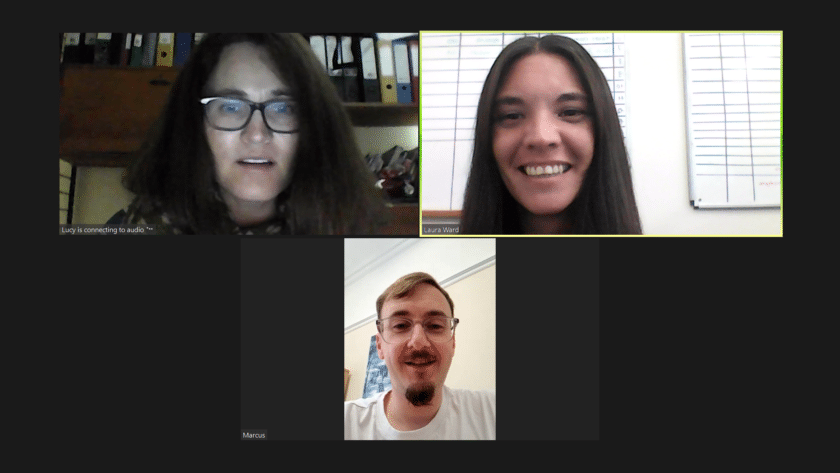Laura Ward, head of Paraplanning, Nexus IFA, explains how the paraplanning team came together in the pandemic to help each other through the LIBF Diploma exam
The Nexus IFA paraplanning team – Laura, Marcus and Lucy – were just a few weeks into taking the LIBF Level 4 Diploma in Paraplanning (DipPP) when Covid-19 struck, locking down the country.
Pre-lockdown the team had been undertaking training with one of the directors of the Bridgwater-based financial planning firm, using a conference room and working through the various modules together.
“When lockdown happened it threw us. With having to adapt to new ways of working out of the office, we began to struggle. Working alone, and because we weren’t used to studying for exams, it was difficult to get into the swing of it and make time to study in a busy working day. We needed the stimulus that we had been getting from working together in a dedicated session,” Laura says.
They decided as a team to set aside a few hours in the evening to study together via Zoom. “We split the work, so we’d cover a chapter an evening, and each of us would take a few pages,” Laura explains. “Then I’d prepare some questions for the end of each session to test us on what we’d learned.
“We started off saying we’d spend an hour per evening three nights a week, but it easily ended up as three hours, with our partners coming in with food for us. We’d also get together virtually one day at the weekend as well. All while working full-time.”
It was a study programme that worked well, she says. “Because we were sharing the reading the concentration was there. Hearing someone else explain it as well as reading about it made the information clearer and sink in more. It also made us question how we would interpret different sections. The wording might resonate more with one person than another. It meant we were more engaged with the whole process.”
The other result of studying as a group, she says was the way it affected the dynamic of the team. “It’s made us the best of friends. We now talk regularly outside of work. And because of it the dynamic of the team at work is absolutely solid. We have a lot on at the moment and as a team we are working so much better.”
The whole team decided to take the LIBF Diploma in Paraplanning, Laura explains, “because it meant we could all do it at the same time and support each other throughout. It made sense rather than each go a different R0 route.” Two advisers in the firm had been through the LIBF adviser qualification which also helped pave the way.
“I think the LIBF course is a really good baseline for a paraplanning team because we are all now Level 4 qualified and ultimately, I believe Level 4 is going to matter in order to be a paraplanner. And we can add additional exams to it too. It gives us opportunities now to look at specialisms we want to take individually, in terms of the career we want to pursue.”
The LIBF course consists of two units and is assessed in three sections; each section must be passed to achieve the qualification. These are a multi-choice exam and two items of coursework. For 2021, the coursework included putting together a guidance leaflet for new IFAs for how to structure a suitability report, and a case study.
Laura says the team liked the LIBF course also because it was about imparting information, “in plain English, in a straight forward manner. I’m not an exam person and I felt the way the course and the exam were set out really made for a good learning experience. I for one appreciated that. We would do it again because it was such a good course.”
She’d also recommend anyone doing any kind of qualification to study as a group. “As much as the exam process was stressful at times, doing it the way we did was a fun experience and we got so much more out of it studying as a group.”





























